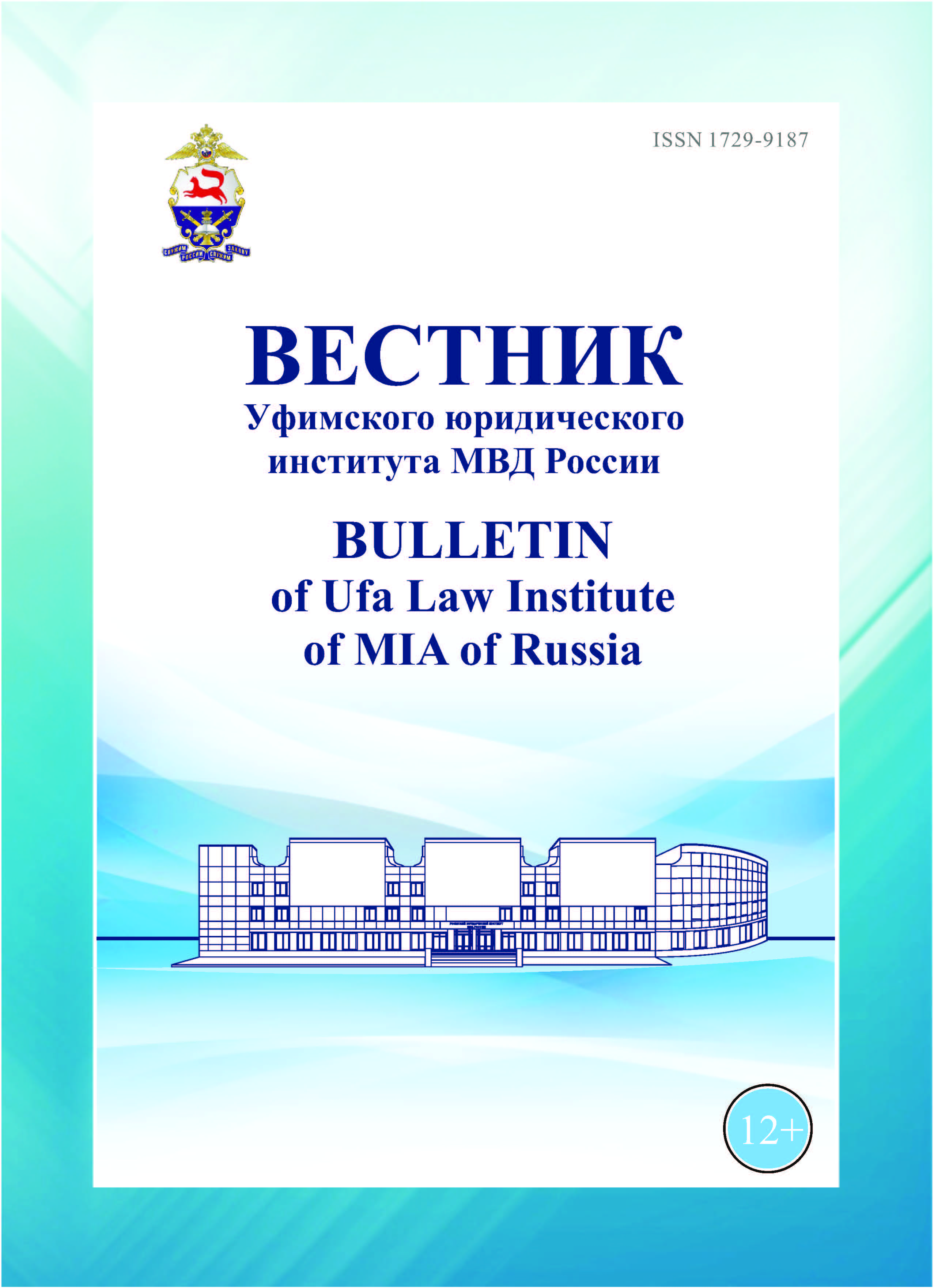UDC 343.3/.7
The article reveals the concept and content of the mercenary motive in the qualification of a crime under Article 160 of the Criminal Code of the Russian Federation “Appropriation or embezzlement”. The problem of limiting the subjective interpretation of a mercenary motive is indicated. The explanations issued by the highest judicial authorities regarding the content of the mercenary motive in determining the guilt of a person in committing embezzlement, including in retrospective aspect, are analyzed; the scientific approach to determining the content of a mercenary motive is investigated; judicial practice on the subject of the study is given. As a result of studying these aspects together, the author comes to the conclusion that in the interpretation of the resolution of the Plenum of the Supreme Court of the Russian Federation dated November 30, 2017 No. 48 “On judicial practice in cases of fraud and embezzlement”, a broad approach to the definition of a mercenary motive is not fully implemented in practice, in connection with which sets out his own vision of solving this problem.
crime, theft, misappropriation, embezzlement, mercenary motive, material gain, qualification
1. Gassman A. Appropriation and embezzlement of another’s property: January and February // Journal of Civil and Criminal Law: January and February. SPb.: Printing House of M. M. Stasyulevich, 1877. Book 1. P. 1–62. (In Russ.)
2. Isaev M. M. Property crimes // Soviet justice. No. 23–24. P. 67–68. (In Russ.)
3. Borzenkov G. N. Assessment of damage in cases of infringments on personal property // Soviet Justice. 1976. No. 1. P. 5–7. (In Russ.)
4. Veklenko V. V. Crimes against property as a criminal fiction // Russian Law Journal. 2000. No. 3. P. 15–19. (In Russ.)
5. Kruglikov L. L., Perch N. V., Tenchov E. S. Property crimes or crimes against property? // Actual problems of legal liability for violations in the field of economic activity and taxation: materials of the second scientific and practical conference. Yaroslavl, 2002. P. 84–88. (In Russ.)
6. Bratanov V. V. Forms of theft of objects of special value// Russian investigator. 2007. No. 11. P. 6–8. (In Russ.)
7. Kirshenman V. V. Responsibility for crimes against property // Bulletin of Moscow University of the Ministry of Internal Affairs of Russia. 2007. No. 6. P. 55–57. (In Russ.)
8. Belokurov O. V. Commentary to the resolution of the Plenum of the Supreme Court of the Russian Federation dated December 27, 2007 No. 51 “On judicial practice in cases of fraud and embezzlement” // Russian Judge. 2008. No. 11. P. 18–22. (In Russ.)
9. Bezverkhov A. Some questions of qualification of appropriation and embezzlement // Criminal law. 2008. No. 4. P. 4–8. (In Russ.)
10. Bakradze A. A. Entrusted property as a subject of appropriation or embezzlement // Russian investigator. 2009. No. 8. P. 12–14. (In Russ.)
11. Nikitin A. V. Finding things: legal aspects // Arbitration and civil procedure. 2014. No. 4. P. 51–58. (In Russ.)
12. Khilyuta V. V. Mercenary motive in embezzlement: are there limits to an expansive interpretation? // Lex russica. 2020. № 4 (161). P. 93–102. (In Russ.)
13. Lopashenko N. A. Infringements on property: monograph. M.: Norma, Infra M, 2012. 528 p. (In Russ.)
14. Bezverkhov A. G. Mercenary motive as a subjective sign of theft of other people’s property // Criminal law, criminal legislation: theory and practice: collection of scientific articles of St. Petersburg, 2017. P. 26–32. (In Russ.)
15. Minenok M. G. The genesis of greed // Bulletin of Leningrad State University. Ser. 6. History of the CPSU, scientific communism, philosophy, law. 1988. Issue 3. P. 81. (In Russ.)
16. Zelinsky A. F. Greed: the experience of criminological and psychological analysis // State and law. 1993. No. 3. P. 67–72. (In Russ.)









